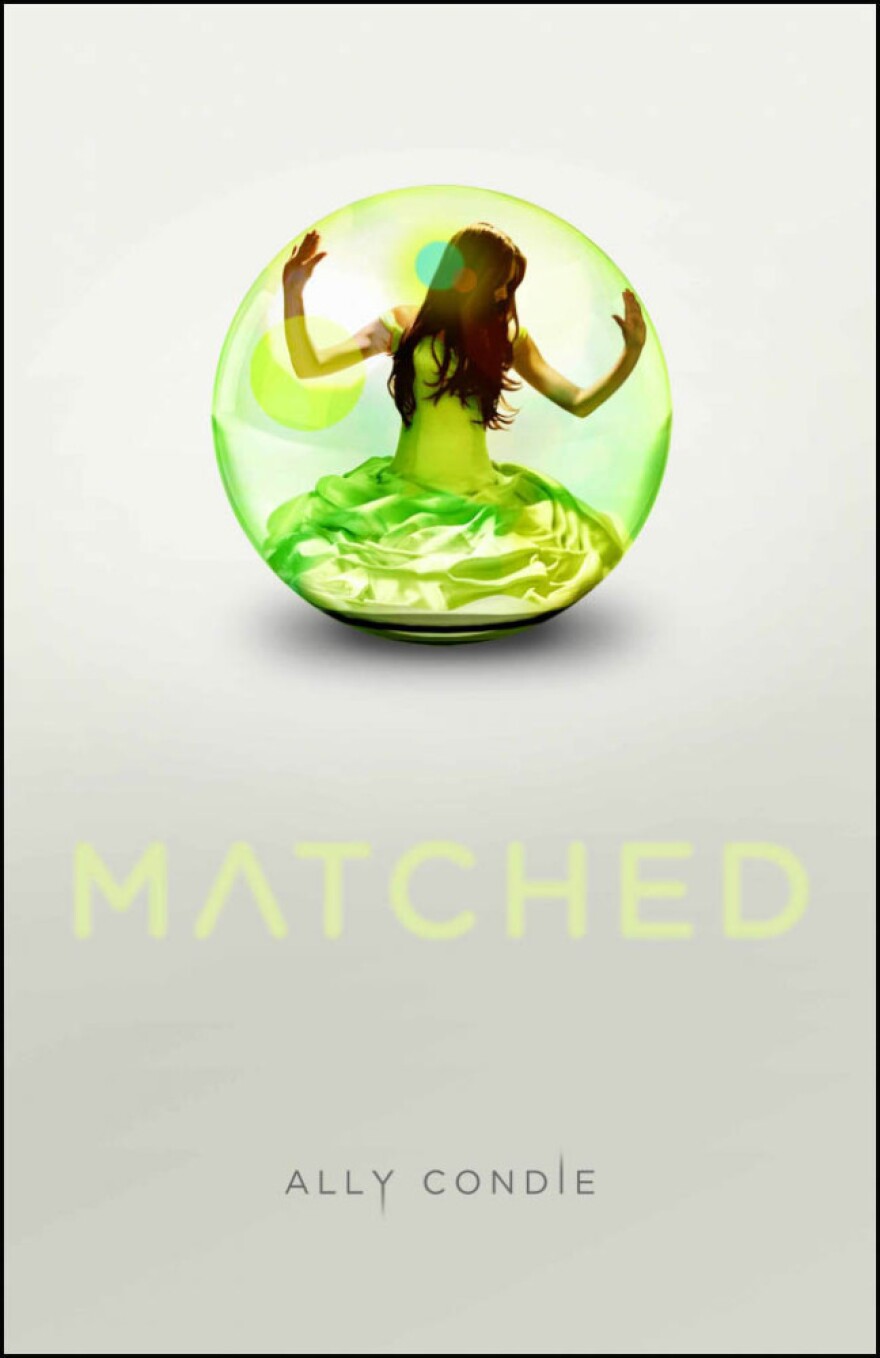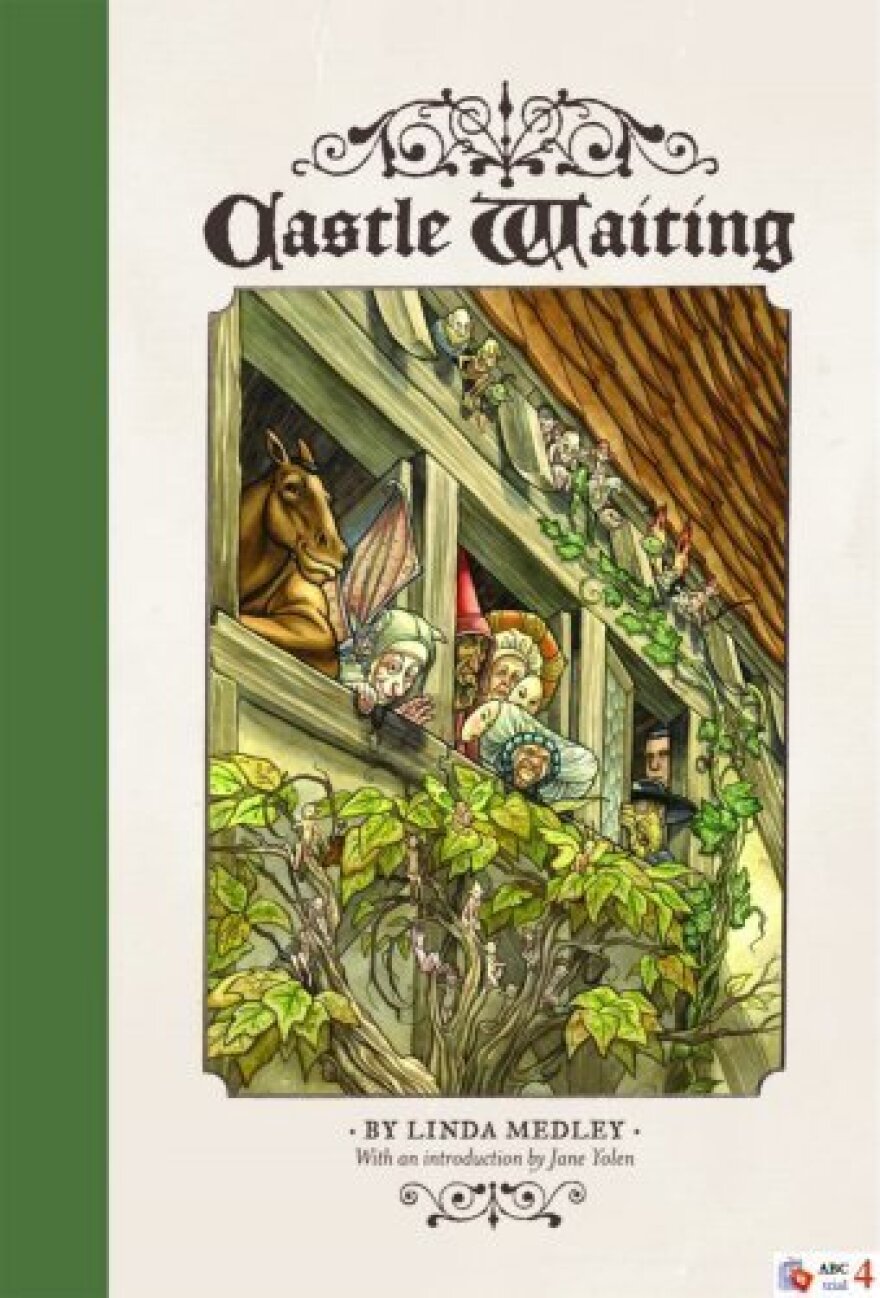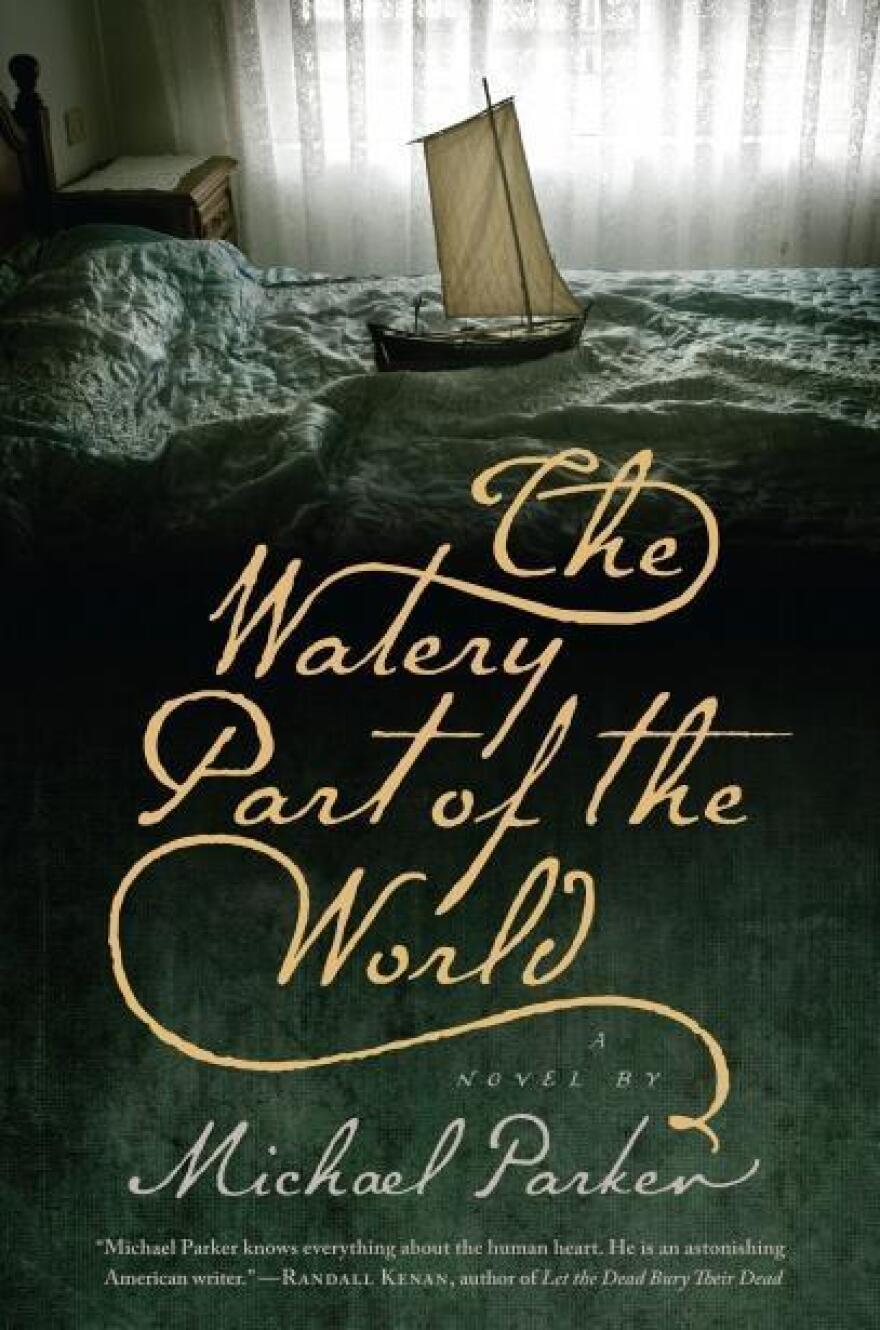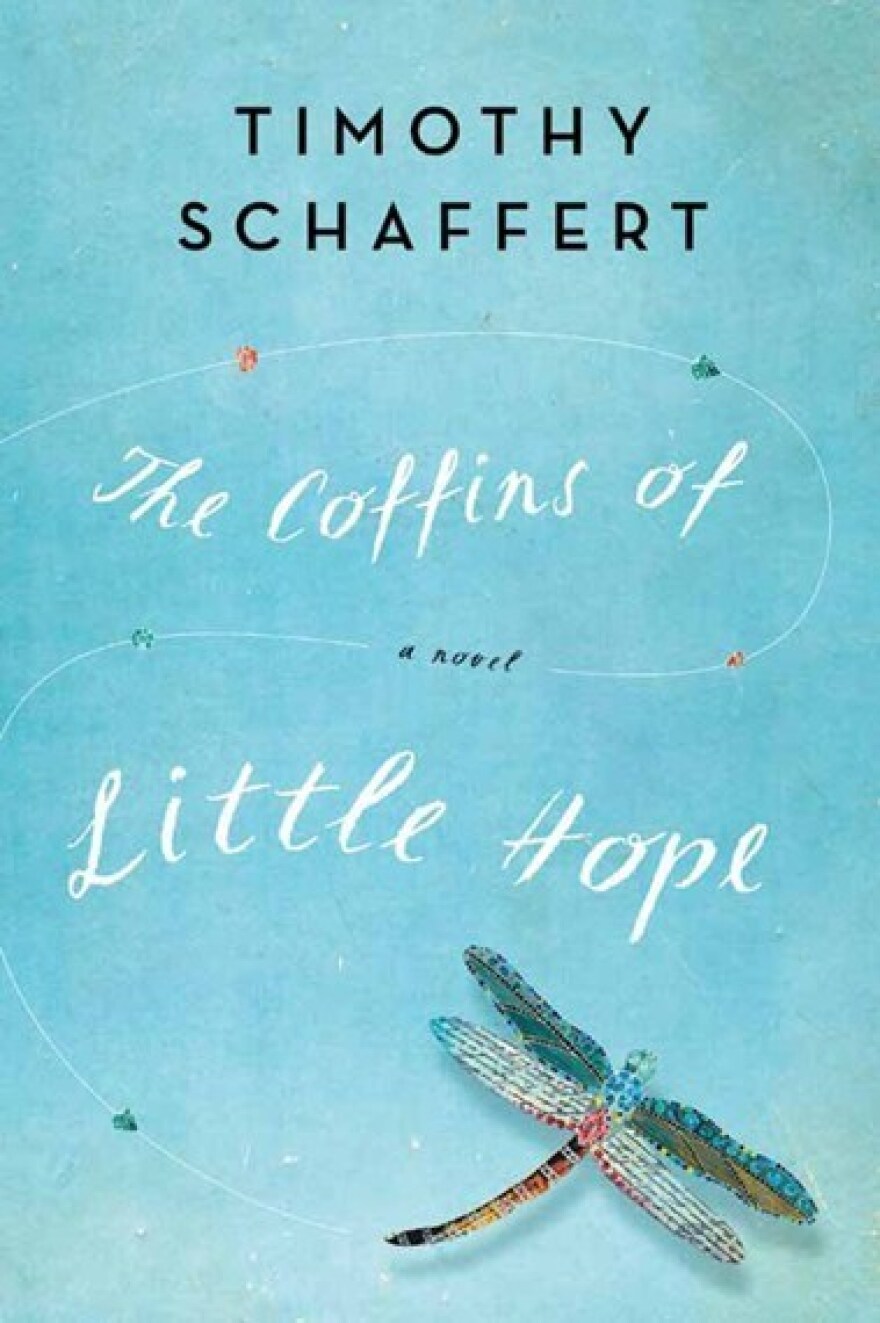My office (a spare bedroom in my house) is strewn with books that I've gotten for possible review. There are books on the bookshelves, books more or less arranged on the floor and other books stacked high, waiting to be shelved. I probably start 15 books for every book I finish. When I'm ready for my next good read, I look for a book (fiction or nonfiction) with a strong narrative voice, wonderfully drawn characters and writing that makes me stop and savor the words the author has written — all of which are present in these 10 terrific books.

Midnight Riot
By Ben Aaronovitch; paperback, 320 pages; Del Ray, list price: $7.99
Mysteries with a touch or more of the supernatural aren't hard to find on library and bookstore shelves these days, but I found Midnight Riot, Ben Aaronovitch's novel of elastic realism, to be something special, mainly because of the voice of the narrator, (London) Police Constable Peter Grant.
Caught in the wrong (or right?) place at the right (or wrong?) time, Grant stumbles upon a murder scene in which a ghost approaches him and claims he witnessed the crime. As a result, Grant is assigned to work with Detective Chief Inspector Thomas Nightingale, the department's go-to man for crimes involving magic. In short order, he finds himself enmeshed in a family feud among the personifications of the various tributaries (both above and below ground) of the Thames River. Meanwhile, this being a police procedural, he and Nightingale plod away at unraveling not only the original murder but also various other nasty events that seem to be related to it. And, under Nightingale's tutelage, Grant begins to develop the magical abilities that he seems to have a gift for (as evidenced by his having been able to talk to the ghost witness in the first place), but of which he's been previously unaware.
Grant's voice is colloquial and self-deprecating, the pages turn quickly, and London comes alive in all its squalor and beauty. And did I mention Toby, one of the best (canine) sidekicks in contemporary fiction? Fans of Neil Gaiman's Neverwhere should enjoy Aaronovitch's novel and its sequels quite a lot. Now to decide whether to shelve it with the mysteries or the fantasies ...

Matched
By Ally Condie; hardcover, 384 pages; Dutton Juvenille, list price: $17.99
Dystopian novels for teens have been around for a long while, but this particular sub-genre of fantasy got a huge second wind from Susanne Collins' The Hunger Games trilogy. If a teen you know is looking for a good follow-up, lead him toward Matched, a first novel by Ally Condie (Dutton, 2010). The novel is set in a world controlled by an all-powerful group known as The Society, in which everything about each person's life — food intake, profession, marriage partner, date of death, etc. — is determined by statistical formulas.
Seventeen-year-old Cassia Reyes gets her first hint that something's not right during the all-important Matching Ceremony, when she learns who her husband will be. It turns out that it's her best friend, Xander. But when she gets home and looks at the picture she's been given, it's that of Ky, one of the outcasts at her school. How could this discrepancy occur in a perfectly regulated society? And is there anything she can do? Can any individual take on The Society — and win? Matched is followed by Crossed, which is due out in November 2011, but I somehow doubt that the story will end there. This book is perfect for seventh-graders and up.

Castle Waiting & Castle Waiting II
By Linda Medley; hardcover, 472 pages and 384 pages; Fantagraphic Books, list price: $29.95 each
Castle Waiting and its sequel, Castle Waiting II (Fantagraphics, 2006 and 2011), were originally available as a series of award-winning individual comic books. I'm hopeful that they'll gain a much deserved wider reading audience now that the collection has been brought together and republished in two beautifully produced volumes.

Beginning with a Sleeping Beauty-like back story, the tale extends outward as the hobgoblin-infested castle where Sleeping Beauty grew up, the Castle Waiting of the title, becomes a sanctuary for anyone in need. Each of the motley crew at the heart of these tales has sought out the confines of the castle looking for support, friendship and comfort. They include Jain, a pregnant aristocrat on the run from an arranged marriage; Beakie, a merchant; a knight named Sir Destrier; and a group of bearded nuns (who were once part of a circus), as well as various equally distinctive other characters. In the second collection, we continue to learn more about each of the appealing characters before he or she came to Castle Waiting; we also follow their ongoing interactions with one another.
The black-and-white drawings are precisely crafted, with small, endearing touches that render each character entirely unique. The dialogue is clever and filled with subtle grace notes of drollness and humor. The set will be especially appealing to readers of all ages who enjoy seeing and reading traditional fairy tale tropes teased and played with, all with a sense of good-humored fun. Once you've read them, I know you'll join those of us who are eagerly awaiting the appearance of Castle Waiting 3.

Emily, Alone
By Stewart O'Nan; hardcover, 272 pages; Viking Adult, list price: $29.95
Stewart O'Nan's novels just keep getting better and better (and they were good to start with — if you missed Snow Angels, his 1995 debut, remedy that situation soon). I loved his most recent novel before this one, the award-winning Last Night at the Lobster; and now Emily, Alone, his newest, is just about all that a reader looking for three-dimensional characters, terrific writing and a true-to-life plot could ask for. It seems to me that those of us — and I am one — who are drawn to character-driven novels are really voyeurs at heart; we want to get inside a character's head and understand what makes him tick. O'Nan's novel satisfies that desire.
Emily Maxwell is an 80-year-old widow, mother and grandmother; she's loyal to her late husband's sister, Arlene (although she doesn't always like her). (O'Nan first introduced Emily in his earlier book, Wish You Were Here, but it's not necessary to read it first.) O'Nan gives us a vivid picture of Emily's slowing-down life: the museum visits, the funerals of friends, a trip to the flower show, doing the crossword puzzles she loves, worrying about her aging dog Rufus, listening to classical music and, after Arlene's stroke, caring for her sometimes difficult sister-in-law. O'Nan is spot on as he makes us understand the push and pull, tension and love, of three generations of a family, as he describes, for example, Emily's attempt to remain close to — but not dependent on — her two grown children and four grandchildren. She tries — and sometimes succeeds — in not resenting when thank-you notes don't arrive promptly (or at all), or when long-lived family traditions are thrown to the wind by the younger generation. In this glimpse into one family's life over the course of most of a year, O'Nan shines a light into all our lives. Fans of Evan Connell's masterpiece, Mrs. Bridge, or Elizabeth Strout's Pulitzer-winning Olive Kitteridge are natural readers for this powerful and moving novel.

The Watery Part Of The World
By Michael Parker; hardcover, 272 pages; Algonquin Books, list price: $23.95
Oh my, it's hard to describe how happy it makes me to find a novel like The Watery Part of the World by Michael Parker (Algonquin, 2011) in my piles of books to be read. It doesn't happen often, and when it does it's transporting: Once I began reading it, I found The Watery Part of the World all but impossible to put down.
Parker's novel takes off from the two historical facts it's grounded in: In 1813, Theodosia, Aaron Burr's beloved daughter, who was married to the governor of South Carolina, disappeared off the coast of North Carolina while she was traveling by ship to New York to see her father. One hundred fifty years later, the remaining three residents of a tiny North Carolina barrier island decide to leave their homes and property and move to the mainland. Through the lives of its characters, this elegantly written tale reflects on the nature of race, love, regret, dependence, fear, sorrow, honor and envy — the eternal challenges of being human. The characters, even the minor ones, are fully formed, the setting is so vividly described that you feel you know it intimately, and Parker's writing is purely wonderful. Here's a brief quotation that will give you a sense of the way he makes words work:
The White Woman On The Green Bicycle
By Monique Roffey; paperback, 448 pages; Penguin, list price: $16
Right after they marry in England in 1956, Sabine and George Harwood move to post-independence Trinidad for a job that George has been offered. Fifty years later they're still there. Now both in their middle 70s, George is, as he's always been, happy with his life and loving his adopted country, while Sabine has never been able to adjust to the oppressive heat and the culture of the island. Monique Roffey's The White Woman on the Green Bicycle (Penguin, 2011), which was a finalist for the Orange Prize, switches back and forth between time periods and narrators (so that both husband and wife get their say). In 2006, when George finds a cache of Sabine's old (and unsent) letters to Eric Williams, Trinidad and Tobago's charismatic first prime minister, it sets off a series of events that will shake the foundations of their marriage. But the true main character in this novel is Trinidad itself: its people, its customs and its contradictions. Roffey's explorations of longtime marriages, race and the lingering effects of colonialism are insightful and often painful to read.

Evening Is The Whole Day
By Preeta Samarasan; paperback, 352 pages; Mariner Books, list price: $13.95
Preeta Samarasan's brilliantly executed first novel, Evening Is the Whole Day (Mariner, 2009), takes place in Malaysia. Samarasan focuses her writerly lens on the lives of the Rajasekharans: Politically inclined Raju, the paterfamilias, whose grandfather came to Malaysia from India in 1899 and initiated the family's inexorable rise to the upper classes; his wife, Visanthi, who cannot abide remembering her lower-class upbringing; his elder daughter, Uma, who is excitedly looking forward to leaving home in Ipoh for college at Columbia University; his son, Suresh; and 6-year-old Aasha, who is desperately sad at the recent death of her grandmother and her beloved older sister's imminent departure. As Uma's departure approaches, different chapters explore both the family's past — in vivid, fascinating, and often troubling detail — and the equally vivid, fascinating and frequently troubling events that shaped Malaysian independence.
Like Salman Rushdie's Midnight's Children (which this novel made me want to reread), this is a book that begs to be read aloud. Here's one sentence that gives a good sense of Samarasan's style: "A wry sun was setting with a vengeance on the British Empire." Don't you love the adjective "wry"? It's such an interesting way of describing the end of Britain's colonial reign.

The Coffins Of Little Hope
By Timothy Schaffert; hardcover, 272 pages; Unbridled Books, list price: $24.95
Schaffert's fourth novel, The Coffins of Little Hope (Unbridled Books, 2011), is another triumph of storytelling, featuring quirky characters, humor, compassion and insight into human strengths and foibles. The story revolves around its narrator, 83-year-old Essie Myles, who is the obituary writer for the County Paragraph, her grandson Doc's small-town Nebraska newspaper. In one of the many intersecting plotlines that make up the book, the paper has been contracted to print the last book in a fabulously successful series of teen novels called The Coffins of Little Hope (think A Series of Unfortunate Events and hope that Schaffert someday writes the series of children's books he describes so appealingly). In another, a local woman accuses her former boyfriend, a ne'er-do-well photographer, of kidnapping her daughter, Lenore. The problem is, no one has ever actually seen Lenore. And there's more: Essie learns that her granddaughter, Ivy, long out of touch with the family, is planning to return home, news that is especially upsetting to Doc, who raised Tess, Ivy's daughter, when his sister ran off to Paris when Tess was just a child. Things get even more complicated when the national media learn about the (possible) kidnapping and descend on the small town, and pages of the top-secret conclusion to the aforementioned series of novels start showing up. What anchors these multiple strands of plot and binds them seamlessly is Essie herself — wry, self-aware, and with a secret or two of her own. This enchanting novel is perfect for readers looking for realism with a heart by an author who cares about his characters and wants you to, too. Here's how it begins:
I don't want to quote the last lines, because they're blow-your-mind perfection.

Tooth And Claw
By Jo Walton; paperback, 336 pages; Orb Books, list price: $15.95
If Jo Walton ever had to make an elevator pitch for her novel, Tooth and Claw (Orb Books, 2009), she might have said that it owes a great deal of its sensibility to the tropes of the Victorian novel, except that the main characters are dragons. Which is not to say that her book is in any sense a mashup (do not, for example, think Abraham Lincoln and vampires). Rather, it's a melding of two cultures — humanity and dragonity. (And, as near as I can tell, the main difference between the two cultures seems to be that dragons ritually eat their dead to share their wisdom, strength and power.) As Walton herself put it, the novel is "the result of wondering what a world would be like if the axioms of the sentimental Victorian novel were inescapable laws of biology." As I love both fantasy and Anthony Trollope, Tooth and Claw was simply irresistible to me. Walton begins with the bare outlines of the plot of Trollope's Framley Parsonage: A father dies and his survivors begin a fight over his bequests. One son, a parson, hears his father's last confession and learns a fact that he chooses not to divulge to the rest of the family; another son decides to contest the original will. Meanwhile, the two unmarried daughters become pawns of the male-dominated society. How will it all work out? Will the good get their just rewards and the evil be punished accordingly? Walton's captivating tale is not to be missed.
Copyright 2023 NPR. To see more, visit https://www.npr.org.


